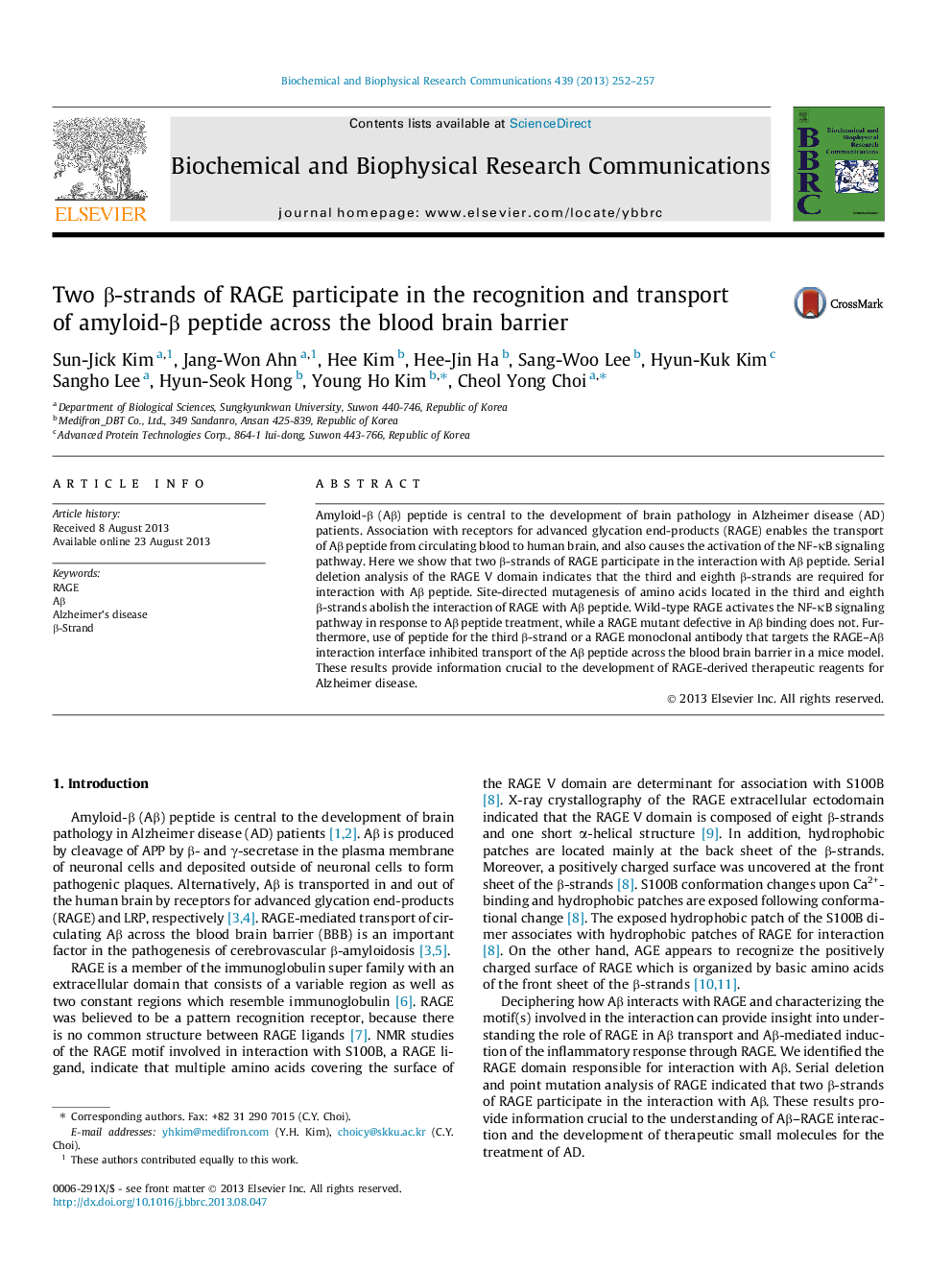| Article ID | Journal | Published Year | Pages | File Type |
|---|---|---|---|---|
| 10758672 | Biochemical and Biophysical Research Communications | 2013 | 6 Pages |
Abstract
Amyloid-β (Aβ) peptide is central to the development of brain pathology in Alzheimer disease (AD) patients. Association with receptors for advanced glycation end-products (RAGE) enables the transport of Aβ peptide from circulating blood to human brain, and also causes the activation of the NF-κB signaling pathway. Here we show that two β-strands of RAGE participate in the interaction with Aβ peptide. Serial deletion analysis of the RAGE V domain indicates that the third and eighth β-strands are required for interaction with Aβ peptide. Site-directed mutagenesis of amino acids located in the third and eighth β-strands abolish the interaction of RAGE with Aβ peptide. Wild-type RAGE activates the NF-κB signaling pathway in response to Aβ peptide treatment, while a RAGE mutant defective in Aβ binding does not. Furthermore, use of peptide for the third β-strand or a RAGE monoclonal antibody that targets the RAGE-Aβ interaction interface inhibited transport of the Aβ peptide across the blood brain barrier in a mice model. These results provide information crucial to the development of RAGE-derived therapeutic reagents for Alzheimer disease.
Keywords
Related Topics
Life Sciences
Biochemistry, Genetics and Molecular Biology
Biochemistry
Authors
Sun-Jick Kim, Jang-Won Ahn, Hee Kim, Hee-Jin Ha, Sang-Woo Lee, Hyun-Kuk Kim, Sangho Lee, Hyun-Seok Hong, Young Ho Kim, Cheol Yong Choi,
